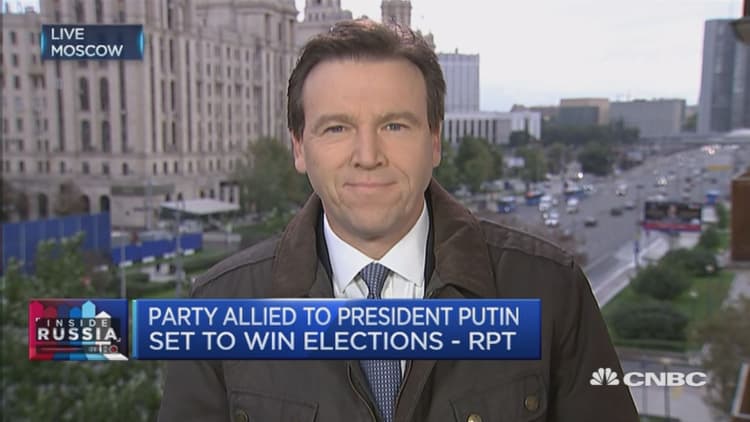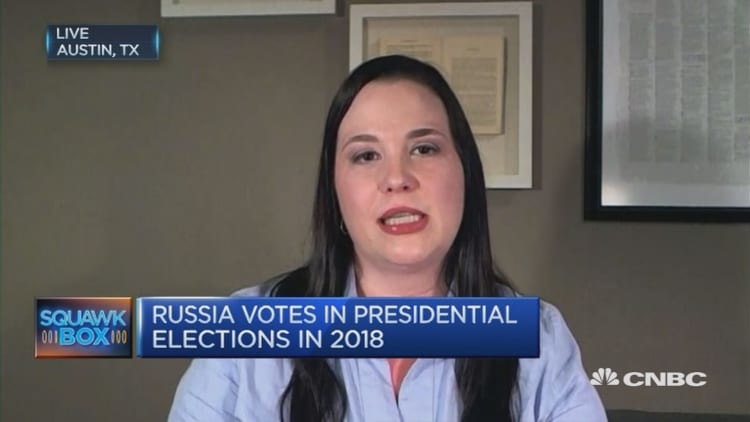
Vladimir Putin consolidated his position of power as Russian president Monday with results confirming that his allies in the lower house of parliament had comprehensively won elections.
Putin's ruling United Russia party had 49 percent of the vote in 2011, but, but with 90 percent of the votes counted, that lead increased to 54.2 percent over the weekend. Reuters reported at 8.00 a.m. London time that the party was on track for a landslide with a possible 343 of the 450 seats available.
This gives Putin's party a strong position in the parliament and a mandate to change the country's constitution.
After a deep recession in Russia, following international transactions and a dramatic fall in the price of oil, many would have expected the incumbents to weaken at the ballot box. But the results suggest a consolidation and a strengthening for United Russia in what is seen as a dry run for presidential elections in 18 months' time.
Putin hailed the party's victory in a speech Sunday evening, but also alluding to the sharp slowdown in the Russian economy. "The situation is not easy, people feel that, and they want and hope that the political situation should be stable," he said, according to Reuters.
While this would technically give the pro-Putin politicians more weight in the Duma, Timothy Ash, head of CEEMEA desk strategy at Nomura, was under no illusions as to where the real power lies.

"(This election is) not a significant change in my mind," he told CNBC via email on Monday morning.
"I mean, really? Is his (Putin) power not more or less complete/total already (before this election) and who would have questioned his ability to do this anyway."
The Communist party was in second place with 13.5 percent of the vote, according to Reuters citing results by the election commission, followed by the Liberal Democrats party (LDPR) on 13.3 percent and the Just Russia party on 6.2 percent.
The news agency also reported that turnout was low with around 40 percent, compared to 60 percent in the last election.
"Sub 50 percent (turnout) was incredibly low in post-Soviet space and I think just shows that opposition voters stayed at home en masse," Ash later added in a research note.
"Perhaps (it) shows that the crisis of confidence in traditional parties in Western Europe, and indeed the U.S., might not be confined just to the West ... This suggests that Putin's re-election in presidential elections in March 2018 might not be plain sailing (still by far the most likely scenario though), and I don't feel that Putin will feel entirely comfortable with these results."


